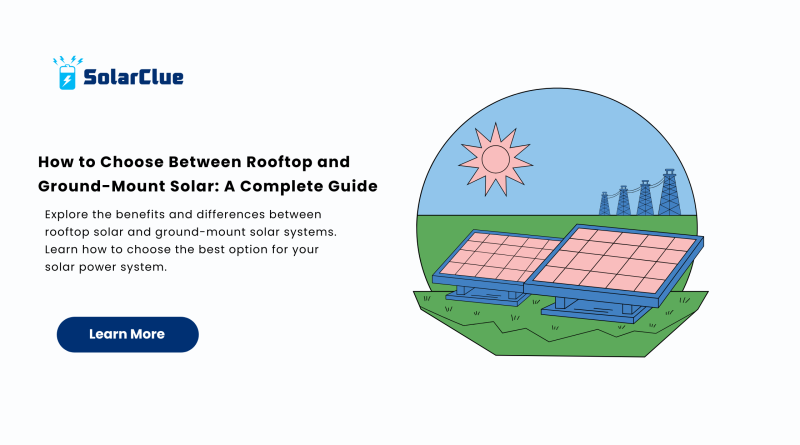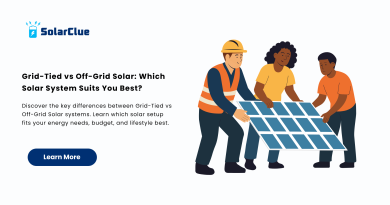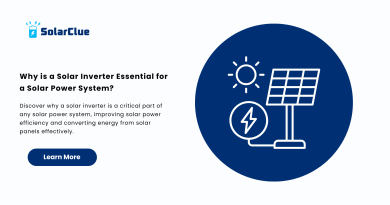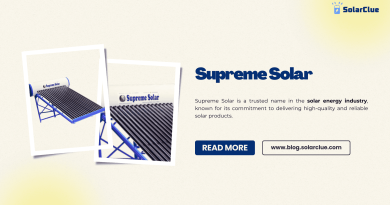How to Choose Between Rooftop and Ground-Mount Solar: A Complete Guide
As the demand for sustainable energy solutions rises, more homeowners and businesses are considering solar power as a viable option. When planning to install a solar power system, one of the first decisions to make is whether to opt for rooftop solar or ground-mount solar. Both systems offer unique advantages, but the choice depends on several factors, including space, budget, and energy needs. This comprehensive guide will help you navigate through the pros and cons of each option to make the right decision for your solar power system.
Table of Contents
- 1 Understanding Solar Power Systems: The Basics
- 2 Rooftop Solar: Advantages and Considerations
- 3 Ground-Mount Solar: Benefits and Challenges
- 4 Factors to Consider When Choosing Between Rooftop and Ground-Mount Solar
- 5 FAQs: Common Questions About Rooftop and Ground-Mount Solar
- 6 Conclusion: Which Solar Panel Installation Is Right for You?
Understanding Solar Power Systems: The Basics
Before diving into the differences between rooftop solar and ground-mount solar, it’s important to understand the fundamentals of solar power systems. At their core, solar power systems consist of solar panels, which capture sunlight and convert it into electricity through the photovoltaic effect. The energy generated can either be used immediately or stored in batteries for later use. A solar power system typically includes solar panels, an inverter, and a battery system (if applicable).
Rooftop Solar: Advantages and Considerations
1. Utilizing Available Space
One of the primary advantages of rooftop solar systems is that they make use of the space that is already available on your roof. This eliminates the need to find extra land or dedicate space for the installation. It’s a great option for properties with limited ground space or urban environments where space is at a premium. By installing solar panels on your roof, you are able to harness solar energy without sacrificing valuable land area.
2. Cost-Effectiveness
Installing solar panels on your roof is often more affordable than ground-mount solar systems because it typically requires less labor and fewer materials. Additionally, rooftop solar systems can often take advantage of incentives and rebates, further reducing the overall cost.
3. Aesthetic Impact
For many homeowners, the aesthetics of their property are a concern. Rooftop solar panels are installed out of sight, minimizing the visual impact on your property. However, some may find the panels noticeable from certain angles or when viewed from above.
4. Considerations: Roof Integrity
Before installing a solar power system on your roof, it’s important to ensure that your roof is in good condition. If your roof is aging or damaged, repairs may be necessary before installation. Additionally, roofs with complex angles or small surface areas may not be suitable for solar panel installation.
Ground-Mount Solar: Benefits and Challenges
1. Flexibility in Placement
One of the standout benefits of ground-mount solar is its flexibility in placement. These systems are installed on the ground, which means they can be positioned for optimal sunlight exposure, maximizing the efficiency of your solar power system. This is especially useful for properties with large open areas or roofs that are shaded for significant portions of the day.
2. Higher Energy Output
Due to their flexibility in placement, ground-mount solar systems are often able to capture more sunlight than rooftop solar panels. Since they can be tilted and positioned for optimal sun exposure, these systems generally produce more energy, making them a great choice for larger energy needs or for properties with less ideal roof space.
3. Easier Maintenance and Repairs
Unlike rooftop solar, ground-mount solar panels are easier to access for maintenance and repairs. This is particularly important if you live in an area that experiences extreme weather conditions or if your solar power system requires frequent monitoring.
4. Land Use Considerations
The primary downside of ground-mount solar is that it requires additional land. If your property doesn’t have sufficient space for ground-mount solar, this could be a dealbreaker. Additionally, these systems can be more expensive due to the added cost of land preparation, mounting hardware, and installation.
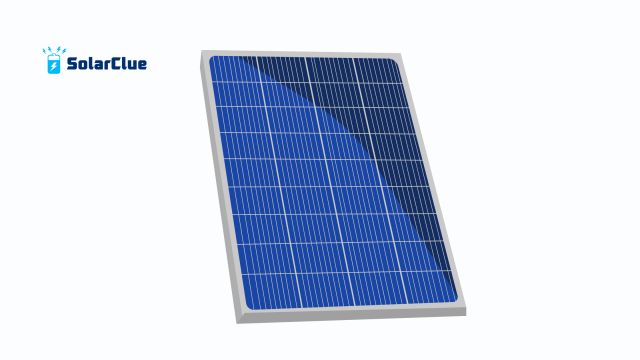
Factors to Consider When Choosing Between Rooftop and Ground-Mount Solar
1. Available Space
If you have limited roof space or live in an urban area where available land is scarce, rooftop solar is likely the best choice. However, if you have ample land space and want to maximize your energy output, ground-mount solar may be a better fit.
2. Budget
When it comes to cost, rooftop solar is generally the more affordable option due to the lower installation costs. However, ground-mount solar can offer a higher return on investment if you have large energy needs and access to space. The initial cost for ground-mount solar is higher, but it could save you more money on energy bills in the long run.
3. Energy Needs
The size of your solar power system depends on your energy consumption. If you have a high energy demand, ground-mount solar systems may be more efficient, as they allow for more solar panels and greater customization. Rooftop solar, on the other hand, may limit the number of solar panels you can install, making it less suitable for larger energy needs.
4. Aesthetic Preferences
If maintaining the visual appeal of your property is important, rooftop solar might be the way to go since it is less visible. Ground-mount solar systems can be more conspicuous and may affect the aesthetics of your landscape.
5. Maintenance Requirements
Ground-mount solar systems are easier to maintain and repair, which may be a deciding factor if you anticipate needing regular monitoring or repairs. Rooftop solar can be harder to access, and repairs may incur additional costs due to the difficulty of reaching the panels.
FAQs: Common Questions About Rooftop and Ground-Mount Solar
Which is more cost-effective: rooftop solar or ground-mount solar?
Rooftop solar is generally more affordable to install, as it doesn’t require additional land or mounting structures. However, ground-mount solar systems can provide more energy, potentially offering a better return on investment for larger energy needs.
Can I install solar panels on any type of roof?
Most roofs can accommodate solar panels, but certain roof types, such as flat or older roofs, may require additional preparation or may not be suitable. It’s important to consult with a professional installer to assess your roof’s condition and suitability.
What are the benefits of ground-mount solar over rooftop solar?
Ground-mount solar allows for better placement and optimal sun exposure, which can result in higher energy output. It also offers easier access for maintenance and repairs, making it a great option for large properties or areas with high energy demands.
Conclusion: Which Solar Panel Installation Is Right for You?
The decision between rooftop solar and ground-mount solar depends on your space, budget, energy needs, and aesthetic preferences. If you have limited space or want a more affordable option, rooftop solar is an excellent choice. However, if you have ample land and higher energy demands, ground-mount solar can maximize energy output and provide greater flexibility in installation.
To explore the best options for your solar power system, visit SolarClue today and get expert guidance on installation and system design. For more insights, check out our blog at SolarClue Blog.

